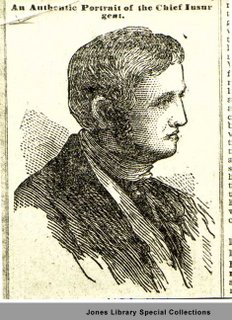Paradigm Shifting to the Left

A quick glance at the history of political parties in America reveals a very interesting trend. When one party has been in power for a prolonged period of time, and a major disaster occurs for the United States, a paradigm shift occurs. Political power is transferred.
Democrats (previously called Democratic-Republicans, but same basic party ideology) controlled the White House from Jefferson until 1860, when Springfield’s favorite Republican son won the Electoral College despite winning no southern states. Lincoln’s party would be in power until FDR defeated Herbert Hoover during the midst of the Depression. The Democratic stay on top of the mountain would be short lived, as JFK and LBJ help remind the world that America was not invincible. Vietnam was a knockout punch for the Democratic Party, with Nixon’s massacre of McGovern in 1972 as the exclamation point.
Even through Watergate, the Republicans have never looked back (both Carter and Clinton, although both Democrats, were very moderate).
Iraq has been compared to Vietnam numerous times. Is this a valid analogy? The true test will come in November of 2008. If the nation nominates and elects an anti-war Democrat, and the Democrats are able to retain a majority in Congress, perhaps the paradigm shift in this country will begin. This, in turn, could lead to a liberal social agenda that would make Republicans cringle. If Iraq is as disastrous as the pundits will have you believe, it could usher in a new era of Democratic dominance. Iraq could permanently kill the Republican Party.


